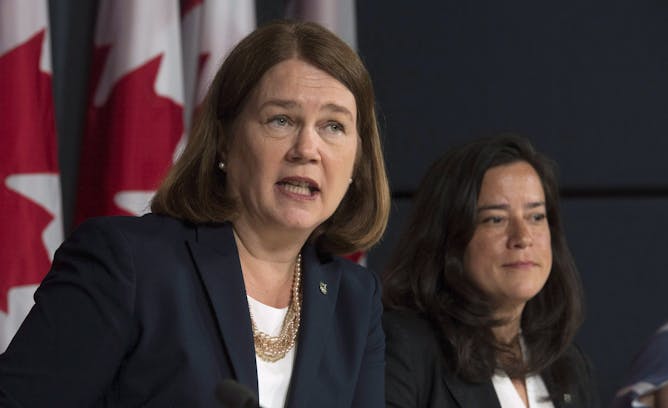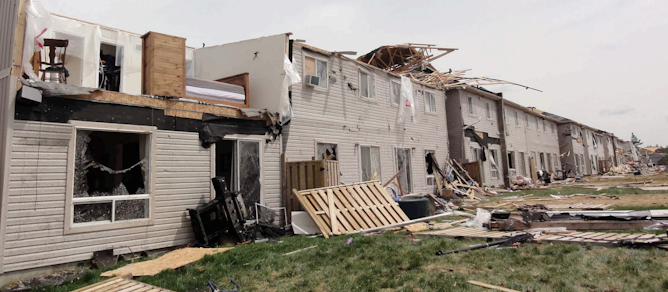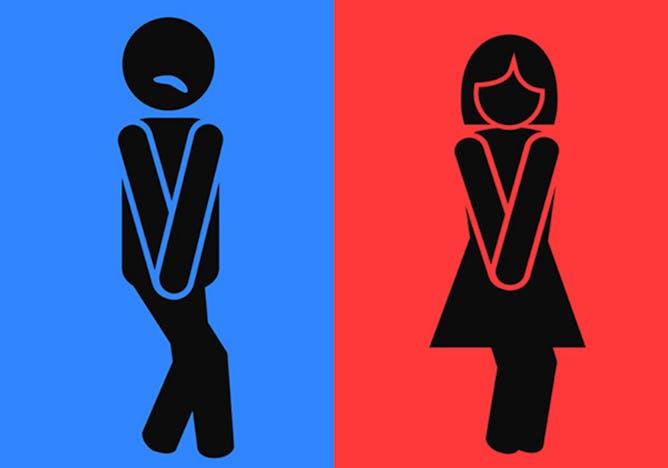|
There are few angles that the media hasn’t explored in the ongoing SNC-Lavalin saga. But leave it to our excellent contributors here at The Conversation Canada to unearth some fascinating historical context. J.P. Lewis of the University of New Brunswick takes a look at the rarity of high-profile cabinet minister resignations, including the story of Mackenzie Bowell, the short-serving prime minister who had six ministers quit his cabinet en masse in the late 1800s.
Could your home withstand an extreme weather event? Many cannot. Insurance claims due to extreme weather reached $1.9 billion in 2018. Gary Martin of Carleton University and Glenn McGillivray of Western University say that better building codes could help alleviate disaster risk.
Finally, with so few public washrooms in many of our cities, vulnerable people are forced to use café and restaurant washrooms. How do mostly minimum wage café and restaurant workers deal with it?
|

Jane Philpott and Jody Wilson-Raybould are seen during a news conference in Ottawa in June 2016.
THE CANADIAN PRESS/Adrian Wyld
J.P. Lewis, University of New Brunswick
While the Wilson-Raybould/Philpott resignations are historic by the numbers, they may also prove historic in creating a new faith in federal cabinet, a previously elite and closed decision-making body.
|

About 100 homes in Angus, Ont. were damaged by a tornado in June 2014. Ten lost their roofs and had to be demolished.
Gregory Alan Kopp, Western University
Gary Martin, Carleton University; Glenn McGillivray, Western University
Weather-related catastrophic events have cost Canadians more than $17 billion in the past decade. That only stands to grow, unless building codes change to make homes more resilient.
|

Washrooms for customers only signs can be seen as an affront to human dignity.
Shutterstock
Mervyn Horgan, University of Guelph; Edith Wilson, University of Guelph
With so few public washrooms in our cities, vulnerable people are forced to use café and restaurant washrooms. How do mostly minimum wage café and restaurant workers deal with this?
|
Arts
|
-
Marguerite Johnson, University of Newcastle; James Bennett, University of Newcastle
Dorothy's slippers, worn by Judy Garland in The Wizard of Oz, have long been celebrated as a 'queer object'. With one pair recently restored at a price of $300,000, do they deserve such adulation?
|
|
Health + Medicine
|
-
Mylynda Massart, University of Pittsburgh
Direct-to-consumer genetic testing company 23andMe is now offering a new 'polygenic risk score' that reveals your risk of developing Type 2 diabetes. Does it work? Are our family physicians ready?
|
|
Politics
|
-
Chris Stafford, University of Nottingham
A last minute meeting with the EU couldn't save her universally detested deal. Now there's less than three weeks to Brexit – and no one knows what to do.
-
Ghaliya Djelloul, Université catholique de Louvain
Demonstrations against Abdelaziz Bouteflika have opened up a rare space for debate and self-expression – and could signal a change to a more free and involved civil society in Algeria.
|
|